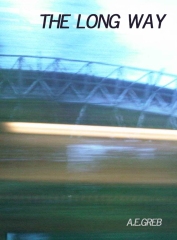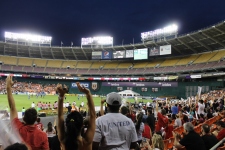The book what I wrote…

-

-
most recent posts
- Here we go again…
- Startlöchern
- If The Kids Are United
- Got, Not Got
- Thirty Hours In Praha
- Football League season review: Watford and how it all worked out in the end
- #WFC1982 – Gerry Armstrong & Real Club Deportivo Mallorca
- #WFC1982 – Keith Pritchett & Drumchapel Amateurs
- #WFC1982 – Pat Rice & Arsenal Youth
- #WFC1982 – Wilf Rostron & Ryhope Colliery Welfare FC
- The Jumper Has Landed
- #WFC1982 – Eric Steele & Wallsend Boys Club
- #WFC1982 – Martin Patching & Dunstable Town FC
- #WFC1982 – Steve Terry & Enfield Town FC
- #WFC1982 – Luther Blissett, AC Milan & Fakenham Town FC
- #WFC1982 – Worrell Sterling & Deeping Rangers FC
- #WFC1982 – David Johnson & Whyteleafe
- #WFC1982 – Ian Bolton & Chalfont St Peter AFC
- A Tale Of Two Towns
- #WFC1982 – Kenny Jackett & Bushey Rangers
- A Seat With A View
- #WFC1982 – Steve Sherwood & Gainsborough Trinity
- Romance In The Vase
- #WFC1982 – The Grand Tour Of Jan Lohman
- #WFC1982 – Charlie Palmer & Long Eaton United
- #WFC1982 – Ross Jenkins & Washington Dilpomats
- #WFC1982 – Neil Price & Walton and Hersham FC
- ELF
- #WFC1982 – Richard Jobson & Burton Albion FC
- Leaders in their Field
- Six Reasons I heart Non League Football
- #WFC1982 – Les Taylor & Oxford United
- #WFC1982 – Jimmy Gilligan & Newport County FC
#WFC1982 – Gerry Armstrong & Real Club Deportivo Mallorca
This entry was posted in #WFC1982, 2014-2015, Segunda División de España and tagged #WFC1982, 1982 World Cup, Balearic Islands, Bangor FC, Belfast, Cathedral of Santa Maria, Cromac Albion, España, España 1982, fútbol, Gerry Armstrong, Graham Taylor, Hurling, Iberostar Estadio, Illes Balears, Mallorca, Northern Ireland, Palma, Palma de Mallorca, Paolo Rossi, R.C.D. Mallorca, Racing Santander, Real Club Deportivo Mallorca, Sócrates, Segunda División de España, St Paul's Swifts, Steve Perryman, Tottenham Hotspur FC, Ulsterman, Watford FC. Bookmark the permalink.













